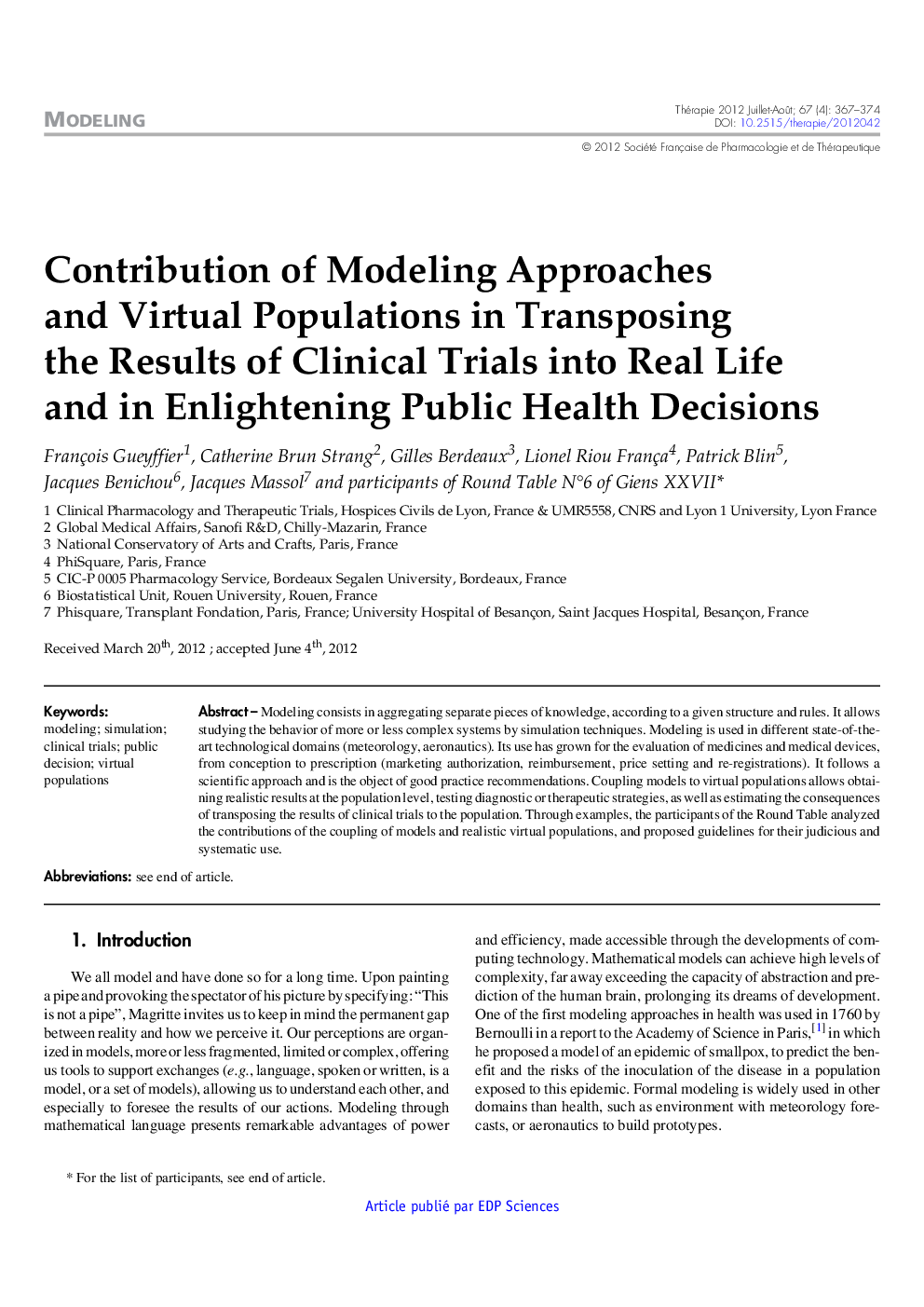| Article ID | Journal | Published Year | Pages | File Type |
|---|---|---|---|---|
| 2579047 | Thérapie | 2012 | 8 Pages |
Abstract
Modeling consists in aggregating separate pieces of knowledge, according to a given structure and rules. It allows studying the behavior of more or less complex systems by simulation techniques. Modeling is used in different state-of-the-art technological domains (meteorology, aeronautics). Its use has grown for the evaluation of medicines and medical devices, from conception to prescription (marketing authorization, reimbursement, price setting and re-registrations). It follows a scientific approach and is the object of good practice recommendations. Coupling models to virtual populations allows obtaining realistic results at the population level, testing diagnostic or therapeutic strategies, as well as estimating the consequences of transposing the results of clinical trials to the population. Through examples, the participants of the Round Table analyzed the contributions of the coupling of models and realistic virtual populations, and proposed guidelines for their judicious and systematic use.
Keywords
ISPORInVSPHRCPBPDCEPSUKPDSEntredINSEERVPHASCTVEMAPBPKPK/PDClinical trialsEuropean Medicines agencyDESNICESimulationdiscrete event simulationPharmacokinetics/pharmacodynamicsPhysiologically based pharmacokineticMarketing authorizationModelingUnited Kingdom Prospective Diabetes StudyNational Institute for Health and Clinical ExcellenceMONICA
Related Topics
Health Sciences
Pharmacology, Toxicology and Pharmaceutical Science
Pharmacology, Toxicology and Pharmaceutics (General)
Authors
François Gueyffier, Catherine Brun Strang, Gilles Berdeaux, Lionel Riou França, Patrick Blin, Jacques Benichou, Jacques Massol,
